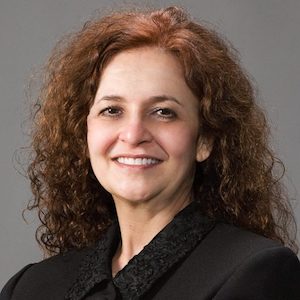Case Status: Victory
Serafine v. Branaman
Fifth Circuit Tosses Texas Psychology Licensing Law
On January 12 2016, Dr. Mary Louise Serafine, a Texas psychologist with impressive academic credentials, but not licensed in the state of Texas to practice psychology, won her appeal in her case challenging Texas’ law regulating the practice of psychology. The Fifth Circuit Court of Appeals ruled both that Texas violated the free-speech guarantee of the First Amendment by restricting Serafine’s political speech and that its law licensing psychologists violates the First Amendment because it sweeps too broadly.
The case began when Serafine ran for the state Senate. When she described herself as a “psychologist” on her campaign website, the Texas board of Examiners of Psychologists and the state Attorney General’s office wrote to her threatening prosecution if she did not cease and desist from “practicing psychology” and providing “psychological services” without a license. Under the Texas licensing law, just calling oneself a “psychologist” if not licensed in Texas is a crime carrying jail time. Earlier, Serafine gave personal growth seminars and also offered counseling to clients. When she got the state’s threatening letters, she stopped using “psychologist,” stopped offering counseling, and sued.
The State steadfastly defended its actions, and the federal trial court denied Serafine’s challenge. In an opinion by Circuit Judge Jerry E. Smith, the Fifth Circuit reversed the lower court and held that the licensing statute is unconstitutional as applied to Serafine’s political speech. Also, in a breakthrough ruling, the Court held that the heart of the statute – the part that defines “psychological services” and bans unlicensed people from providing them – is overbroad because it criminalizes substantial amounts of speech protected by the First Amendment.

According to the Fifth Circuit panel, Texas defines “psychological services” very broadly, indeed – essentially, as wide swaths of advice about human behavior. As the panel’s decision put it:
The ability to provide guidance about the common problems of life – marriage, children, alcohol, health – is a foundation of human interaction and society, whether this advice be found in an almanac, at the feet of grandparents, or in a circle of friends. There is no doubt that such speech is protected by the First Amendment. By limiting the ability of individuals to dispense personal advice about mental or emotional problems based on knowledge gleaned in a graduate class in practically any context, subsection (c) chills and prohibits protected speech.
Because of this overly broad prohibition, the Fifth Circuit panel struck down the part of the statute that bans unlicensed people from providing psychological services as unconstitutional on its face.
Dr. Serafine represented herself at the briefing stage before the Court. CIR filed an amicus brief in her support devoted solely to the overbreadth issue.
It remains to be seen whether Texas will pass a different licensing law to replace the one struck down today or seek Supreme Court review of this decision.
